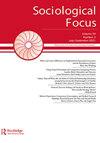A Qualitative Case Study of Catholic Patients’ Responses to Pain, Suffering, and Redemption: Application and Evaluation of the Rational Choice Approach to Religion
Q2 Social Sciences
引用次数: 0
Abstract
ABSTRACT Many studies on religious coping have explored the relationship between religious resources and health outcomes, particularly the mitigation or management of pain and suffering. However, Catholics hold certain positive beliefs about suffering that are largely incompatible with attitudes prevailing today. The doctrine of redemptive suffering holds that human suffering, when accepted and offered to God through prayer, can lead to redemption in the supernatural realm. This article draws on qualitative research involving 27 Catholic patients and examines their responses to pain and suffering with reference to the concept of otherworldly rewards proposed by the rational choice theory (RCT) of religion. We focus on Catholic patients’ modes of thinking. The primary findings are as follows: First, when Catholic patients use religious resources to reduce pain and suffering, most of them demonstrate what RCT calls calculative reasoning. Second, regarding the belief in redemptive suffering, many Catholic patients do not take supernatural meanings seriously; in particular, they are not quite able to accept that “God’s care and plan” can include serious illnesses. Those who finally accept the doctrine initially exhibit calculative reasoning and then gradually transform their negative thinking about suffering through the exercise of virtue. We conclude that otherworldly rewards and religious virtue both play roles in Catholics’ responses to suffering, with the latter being particularly significant as it complements RCT in the study of religious action at the micro-individual level.天主教病患对痛苦、苦难与救赎反应的质性个案研究:理性选择方法在宗教中的应用与评价
摘要许多关于宗教应对的研究都探讨了宗教资源与健康结果之间的关系,特别是减轻或管理疼痛和痛苦。然而,天主教徒对苦难持有某些积极的信念,这在很大程度上与当今盛行的态度不相容。救赎痛苦学说认为,当人类的痛苦被接受并通过祈祷提供给上帝时,可以在超自然的领域获得救赎。本文引用了27名天主教患者的定性研究,并参照宗教理性选择理论提出的超凡脱俗奖励概念,考察了他们对疼痛和苦难的反应。我们关注天主教患者的思维模式。主要发现如下:首先,当天主教患者使用宗教资源来减轻疼痛和痛苦时,他们中的大多数人都表现出了RCT所说的计算推理。第二,关于救赎痛苦的信仰,许多天主教患者并不重视超自然的含义;特别是,他们不能完全接受“上帝的照顾和计划”可能包括严重的疾病。那些最终接受这一学说的人最初表现出计算推理,然后通过美德的行使逐渐转变他们对痛苦的负面思维。我们得出的结论是,超凡脱俗的奖励和宗教美德都在天主教徒对痛苦的反应中发挥作用,后者尤其重要,因为它在微观个体层面的宗教行为研究中补充了随机对照试验。
本文章由计算机程序翻译,如有差异,请以英文原文为准。
求助全文
约1分钟内获得全文
求助全文

 求助内容:
求助内容: 应助结果提醒方式:
应助结果提醒方式:


